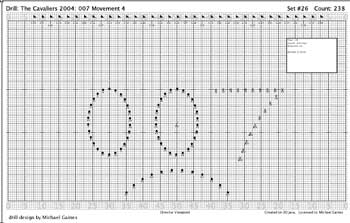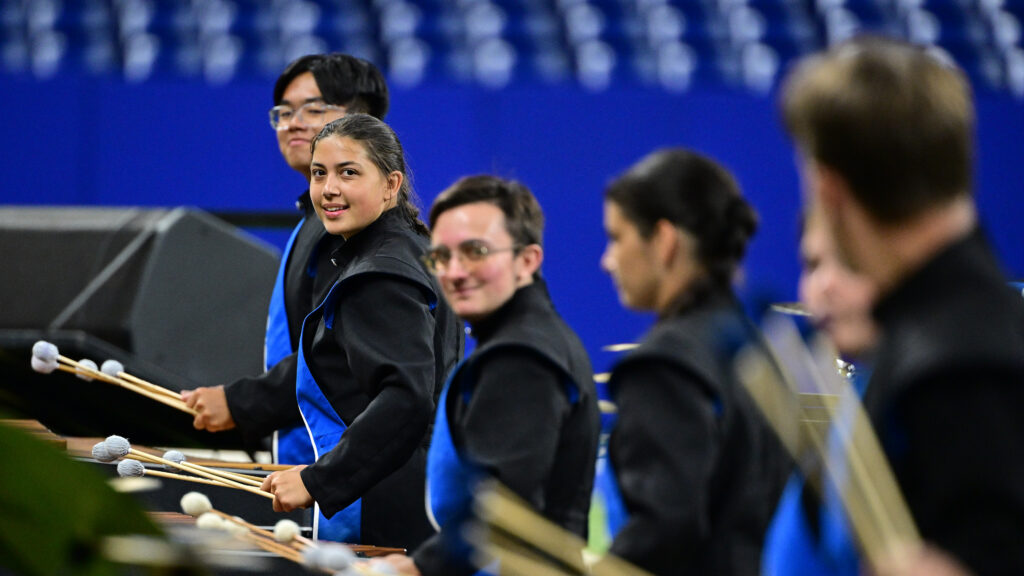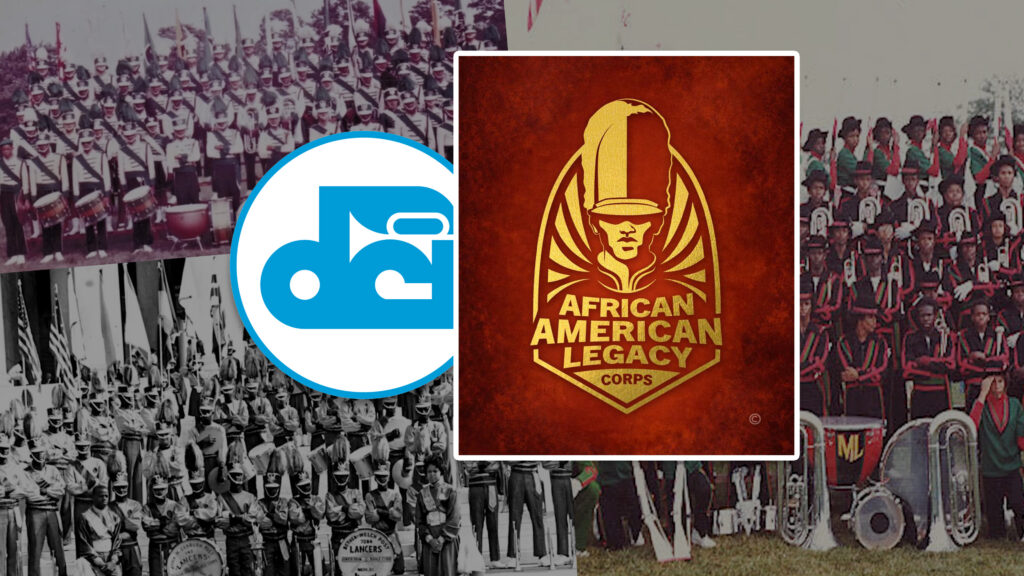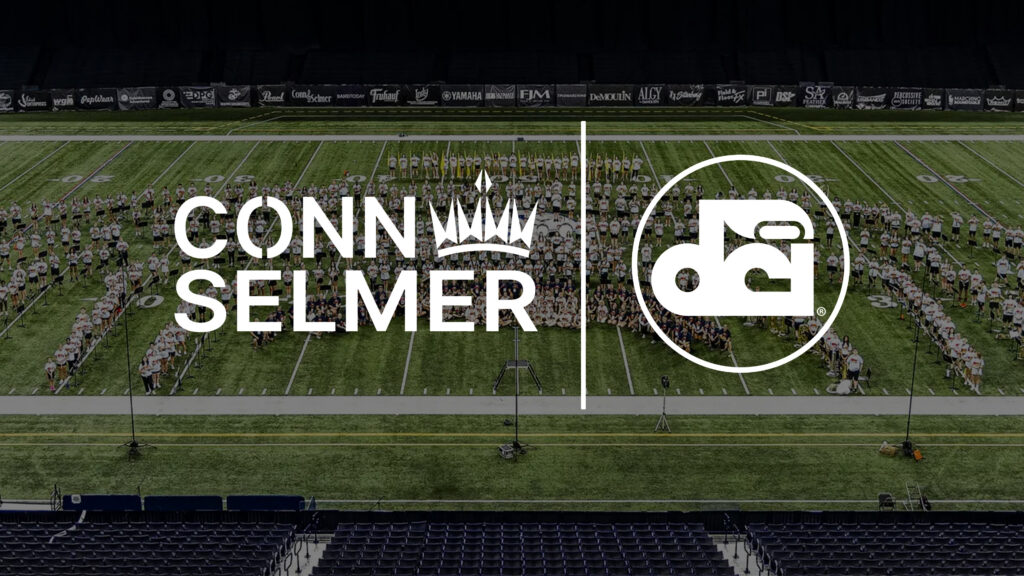Here is the second installment a new ongoing feature on DCI.org, something we have named “Recap.” After every show, one can see instructors and others studying the competition recaps to see how the various captions stacked up. That form of recap is both analytical and informative. But recap also means to look back, go over the main elements of something and sum up what has come before. The “Recap” feature on DCI.org will cover all the facets of the word, delving into our collective history and allowing us to relive some of Drum Corps International’s most significant moments, trends, and people. This will be accomplished through talking with people who have personally experienced the topic at hand, as well as people who have observed it from a distance.

Link to first introduction by Dave Wilson
Introduction by Michael Boo
“The Cavaliers are doing what?” Such was the reaction of many drum corps fans upon learning the corps was taking a diversion from three years of original programming and a multitude of years from sophisticated music few had ever previously heard to explore — egad — movie music. Ah, but we all should have known this wasn’t going to be a typical excursion into the celluloid halls of Hollywood. The corps had expectations and met them grandly. By the end of the season, all were proven that the Cavaliers were able to create a new, cool identity without sacrificing any of their established sense of intellectualism. And who better to connect the dots between the aura of the past and the innovation of the present than “007” himself, the ever-suave, debonair, fearlessly intrepid James Bond? “Cool” was a word kicked around a lot this past season. Writers used it to describe the initial emotional set-up of the finger snapping and even corps alumni were heard uttering, “It’s cool to be a Cavalier again.” After years of appreciative respect, fans were now grooving to a different context, one that saw the corps generate “Oooos” and “Ahhhs” through multiple levels of musical elegance, a sense of projected culture, sleight-of-hand drill evolutions that appeared from nowhere, and yes, that ever-present dashing coolness. With more tricks than emanated from Q’s laboratory of miniaturized innovation, “007” kept pulling special effects out of its collective green sleeves and alternately confounded and mesmerized those who would try to break the code. As program coordinator Scott Koter confided during the season, “The show should seem like you’ve seen it before, as it follows the script of every James Bond movie ever made. Every Bond movie follows a classic theater arc, a constant rise followed by a small decay and an even bigger point. Despite the tension, he always wins. Our show, ‘O07’ is not intended to have any deep meaning, taking the energy of five pieces of Bond music.” Koter went on to bring our attention to the gun barrel opening up in the beginning of the show and the continual use of running (or chasing) seen among the members, as well as the lure of exotic locales and how these influenced the programming — beautifully represented by the rotating circle of drums that intruded upon the undulating horn block, sucking up horns into the perimeter and gently disgorging them back into the block. That, it turned out, was inspired by the underwater submersible that came up on the beach of Cuba in the section entitled, “Welcome to Cuba.” Koter ended his insights with, “We go in to every Bond movie rooting for the hero, but we know Bond will prevail at the end despite all the turmoil in the middle. The audience knows what to expect from Bond and from drum corps and gets it.” Even though the audience knew what was coming up after multiple viewings, it still seemed like a surprise. And that perhaps was at the center of the success of this show. You could see it multiple times and still notice things for the first time. Like a good poker player, Bond never revealed his whole hand at once. Due to the advances in home gadgetry, we can soon review this show to our heart’s content on DVD. Undoubtedly, we will still notice little surprises here and there throughout the show, as if the production is yet evolving. “007” is one show that may never actually be frozen in time. Ever resourceful, Bond continues to elude all the challenges that are thrown at him — even the petrified prison of digital encryption.
The end of 2003
Scott Koter:
About two weeks before the end of the season (in 2003), I kind of had a revelation. My revelation was “We needed to do something different” (in 2004). Maybe the (“Spin Cycle”) show was a bit too cerebral, almost playing checkers using chess strategy. We wanted to pull it back.
Kyle Adelman:
All the score and placement stuff aside, we were all very proud of the fact that (in 2003) we pulled off one of the most intellectual shows ever performed. From a design and a musical standpoint it was cutting-edge. Maybe not the most “drum corps-friendly” show, but to a well-trained ear it was a treat.
Jeff Fiedler:
I would say we thought, “What’s next?” and “How can we get even better?” We pretty much quickly analyze each season not long after it has concluded, we do evaluations (written and verbal) of programming things, instructional concepts, etc. Everyone can say anything about anything — check the egos at the door (which everyone is great about, by the way). Everyone is brutally and collectively honest each year, even after the 2002 undefeated season. From my knowledge it was Scott (who had the initial James Bond idea), although just about everyone seemed to be on board right away.
Andrew Toth:
We were excited to take a break from the “all-original” music concept.
Scott Koter:
Everybody’s always talked about James Bond, that they’d like to do a James Bond show. I knew I liked James Bond movies. The weekend of Indianapolis (the DCI Midwestern Championships, July 23, 2003), everybody was out there (in Indy), but I had to stay home for a family function. I went to a Barnes and Noble. I bought the soundtrack to “Die Another Day” and “Tomorrow Never Dies,” and I put ’em in the car and I’m perusing, and I got goosebumps on the way home. I heard the ballad, which is “Paris and Bond.” Rarely is it these days where you get goosebumps when you hear it right off the CD. (The songs) “Hovercraft” and then “Cuba” — three things that we pretty much transcribed, slightly arranged. I listened to those for 45 minutes, so when I saw everybody in Orlando, we already knew we were going to do “007.”
Jeff Fiedler:
Scott (Koter) and Richard (Saucedo), Andy Toth and a few others had been discussing James Bond music over the middle of the summer (of 2003), it is a concept that we had been talking about since ’80s/’90s program coordinator Jim Campbell brought it up at the end of the 1984 season. I’ll never forget his question to me: “Do you think we should do James Bond or The Planets?” James Bond was something the 1983 Winter Guard had some success with and it was a concept that would fit the corps. Who knew that we had to wait for the last three or four movies for the music to be what we needed to make it a complete package? The drum corps community would not expect this (a James Bond show from the Cavaliers) — we don’t want to be predicatable. Koter created a sample CD (including more-recent James Bond music) for me and let me listen on the day of finals in 2003. He said “Here is what we’re thinking …” I listened and bust out laughing. I thought it was tremendous! He put together some of “Hovercraft,” “Paris and Bond” (the ballad) and a few other tidbits.
Scott Koter:
Everybody liked the idea — we wanted something different. So a week before the 2003 season was over, we already knew we were doing James Bond (in 2004).
Andrew Toth:
I believe we were all in agreement by the end of 2003 that James Bond was going to be the way to go for 2004.
Scott Koter:
Nobody among the staff (expressed reservations about doing a James Bond show). There’s a pretty good trust there among the kids and the staff and the management. Everybody’s skeptical, but when it’s doing well competitively, people trust it. Everybody thought it was intriguing. I think maybe there were some skeptics in the back of their mind, and to be quite honest, we had maybe 200 horns and maybe 100 drummers at our first camp, which is kind of and audition camp, in the basement of Triton College, it’s a wrestling room. We played the first minute and a half, and we didn’t change much (of that) as the season went on.
Andrew Toth:
I don’t think that anyone can be 100 percent about a program. There is always risk involved, especially when deciding on a program a full year in advance. Will the members, audience, alumni, and judges all enjoy it? Well, the members had an incredible season of performances, but I think it had a lot to do with everyone that was involved with the corps believing in the program and making the program, itself, believable.
Scott Koter:
There was a sense, more when they heard it live, that it was a little too much like a college band show.
Andrew Toth:
I can only speak for myself when I say that using original music, although liberating, has no parameters to work in, which can be very difficult at times. Having the ability to identify with a character that has already been created was a welcomed change. Tomorrow we’ll look at how the marching members of the 2004 Cavaliers accepted the “007” show, and how winter and spring rehearsals progressed.
Cast of Characters:
Kyle Adelmann – 2004 Cavaliers mellophone player
Jeff Fiedler — director of the Cavaliers
Michael Gaines — Cavaliers drill designer (submitted above image, as well as upcoming PDFs)
Scott Koter — program coordinator of the Cavaliers
Andrew Toth – Cavaliers color guard designer
Previous Recap features:
Eighty-three





